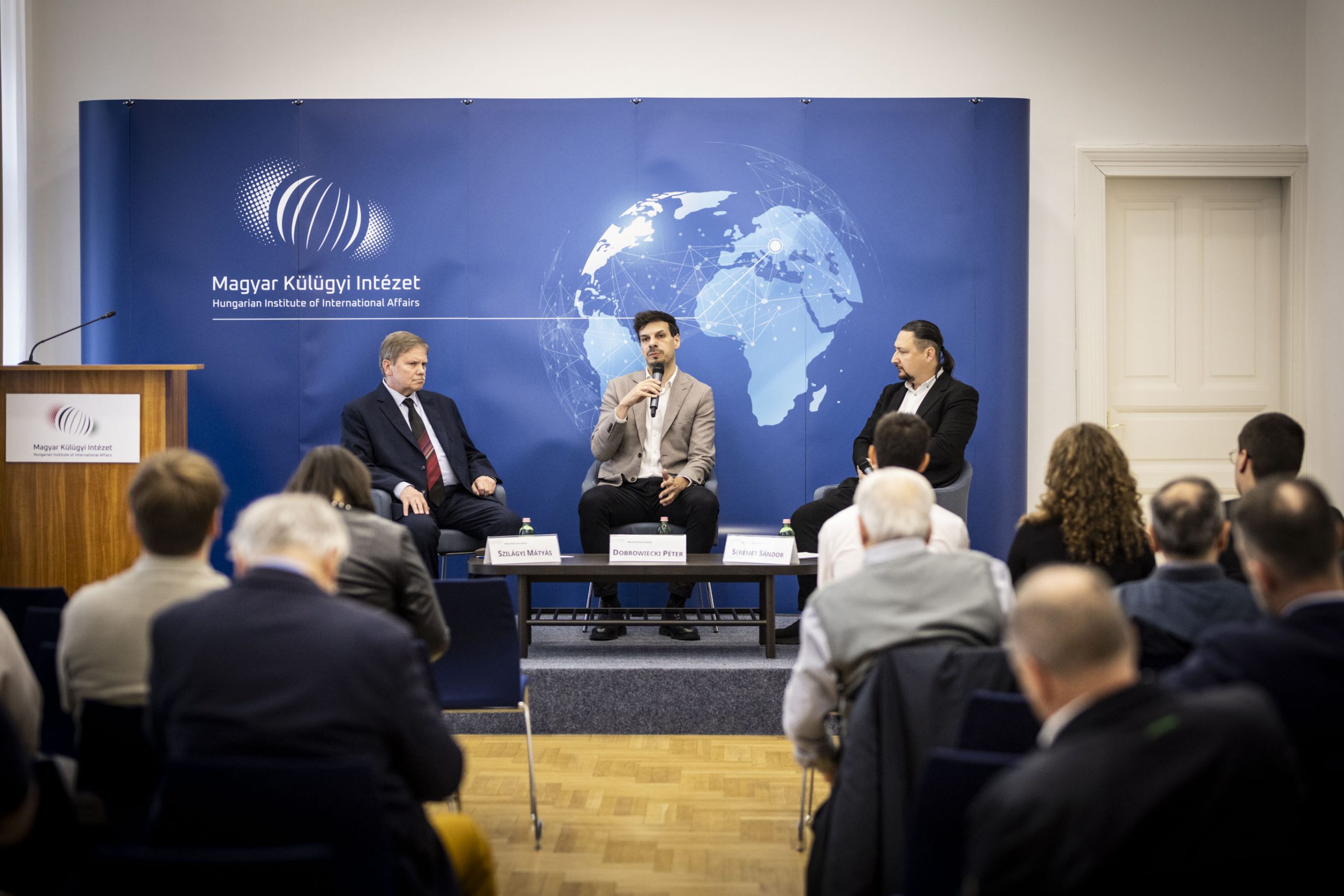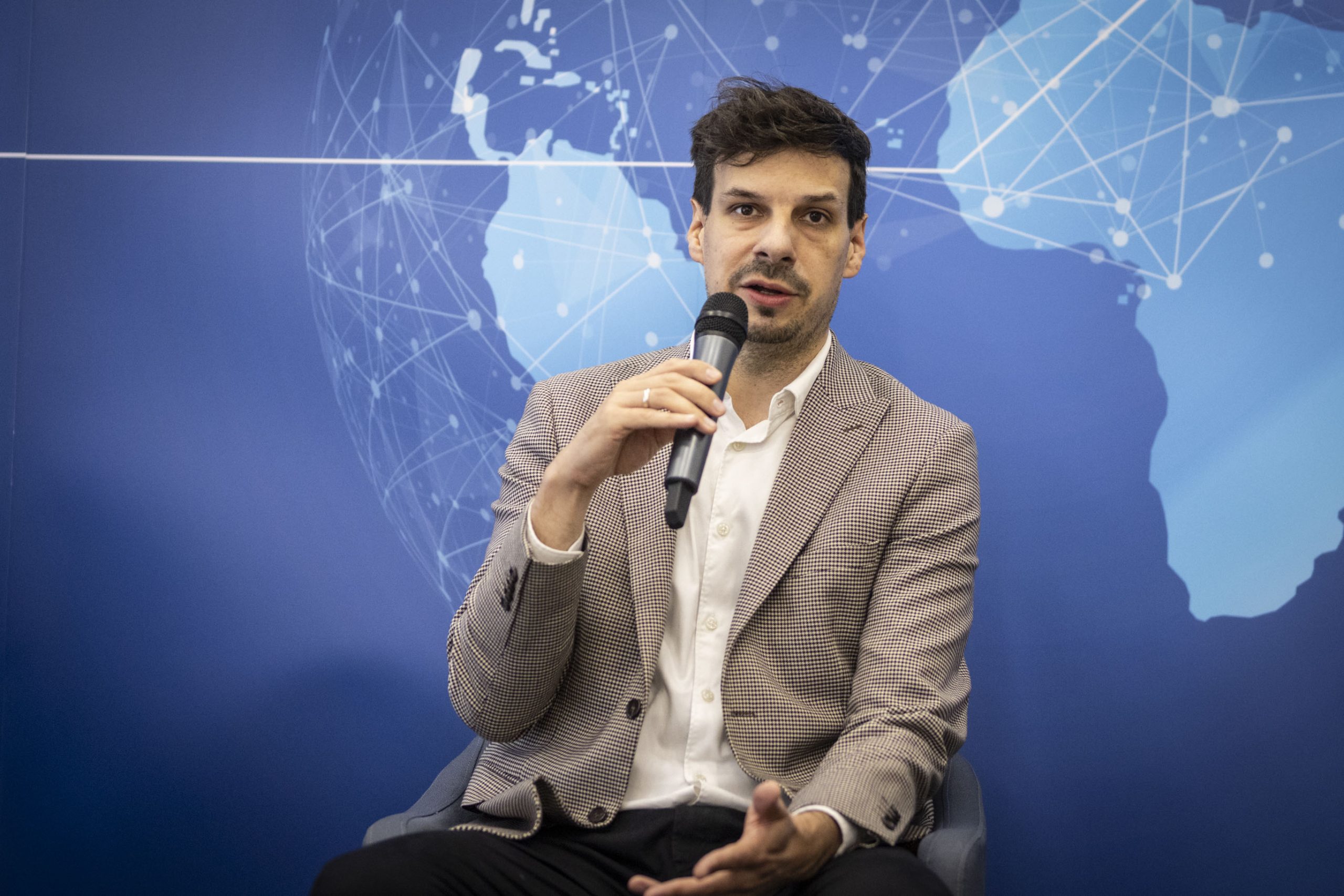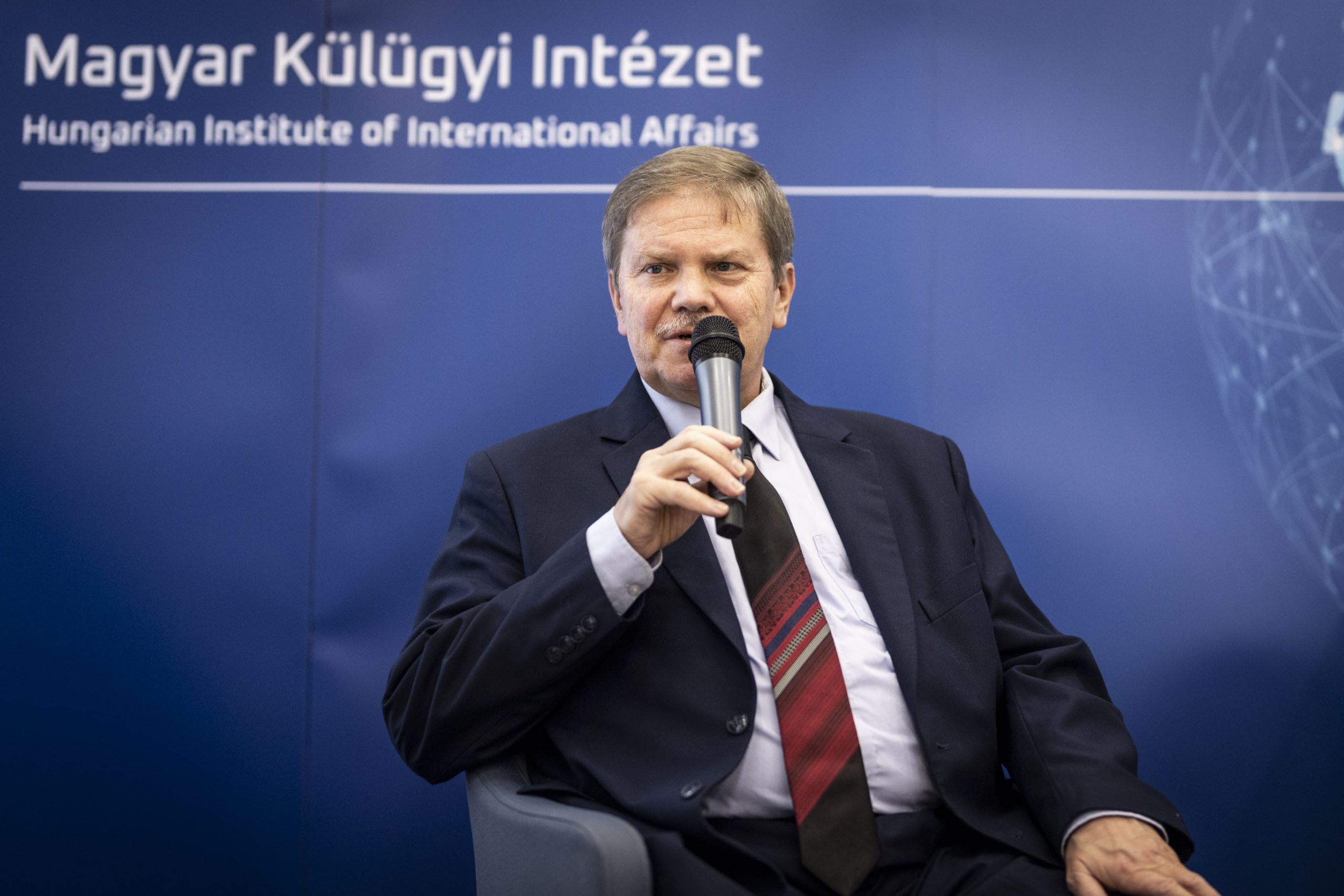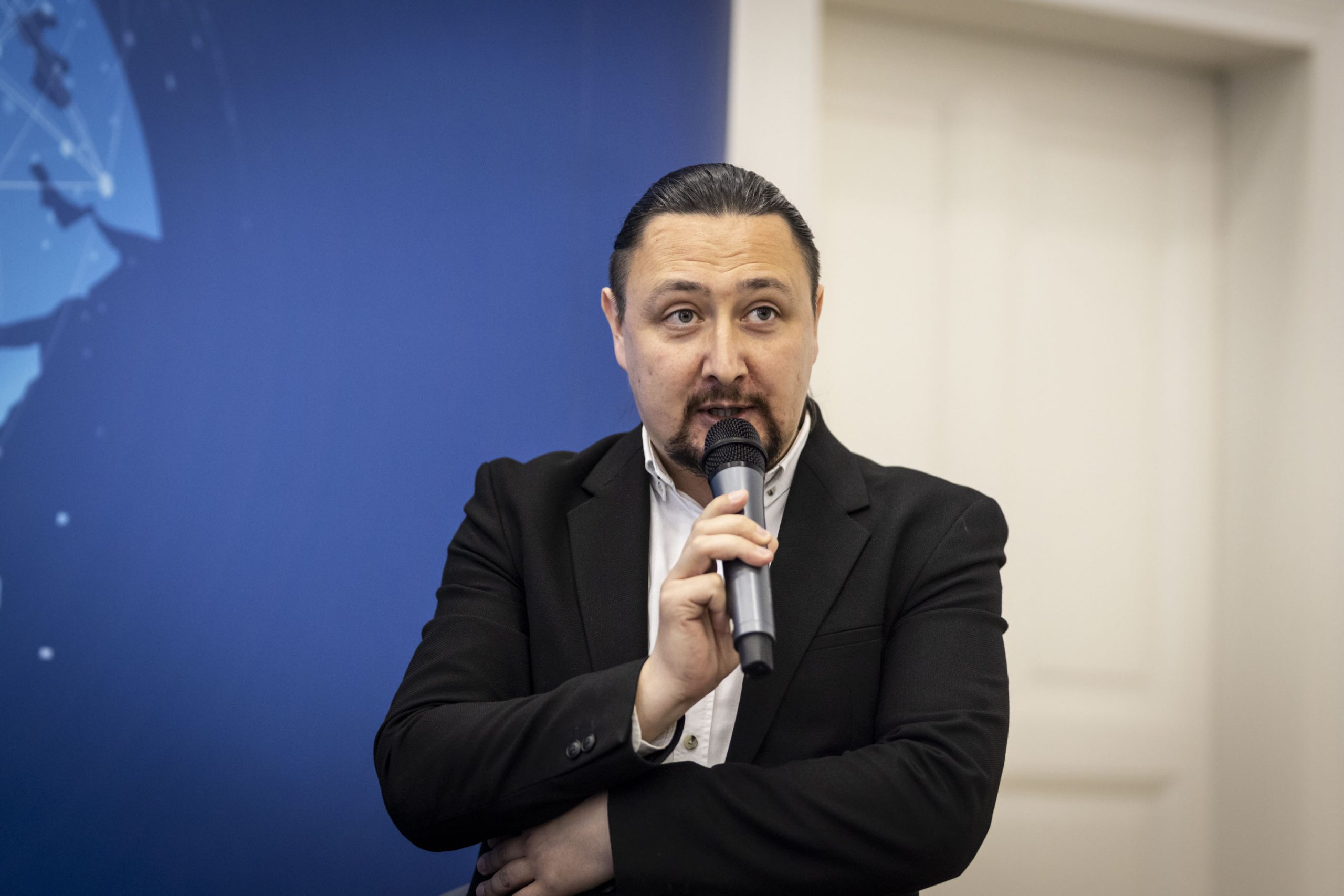On May 15, 2025, the Hungarian Institute of International Affairs (HIIA) held a roundtable discussion titled, “Neighborhood Relations – The Regional Impact of the Russo-Ukrainian Conflict” . The panelists included Péter Dobrowiecki, Head of Research at the German–Hungarian Institute for European Cooperation of Mathias Corvinus Collegium (MCC), and Mátyás Szilágyi, Senior Research Fellow at HIIA. The discussion was moderated by HIIA Senior Research Fellow Sándor Seremet.
Péter Dobrowiecki started the discussion by emphasizing that Poland’s relations with Ukraine have long been determined by the Russian factor. When disputes in Ukrainian-Polish relations are overshadowed by a greater geopolitical threat, namely Russia, relations between the two countries typically improve. It is in Poland’s strategic interest for Ukraine and Belarus to be part of the Euro-Atlantic security structure. At the same time, the situation of the Polish minority in Ukraine and historical grievances – such as the Volhynia massacre and the activities of the Ukrainian Insurgent Army (UPA) during World War II – are a recurring source of conflict. The growth of Ukrainian agricultural exports to the EU, which has a significant impact on the Polish agricultural sector, is also a major source of economic tension.
Mátyás Szilágyi pointed out that while Poland and Romania clearly follow the Euro-Atlantic political mainstream, Hungary typically pursues a policy of going its own way, but at the same time, minority policy plays an extremely important role in all three countries’ relations with Ukraine. Regarding the domestic political situation in Romania, he noted that George Simion, one of the leading presidential candidates, is campaigning on a platform of ending support for Ukraine, strongly echoing the narrative pursued by Donald Trump. This trend is causing concern in the EU elite, particularly because of the possibility of far-right governments gaining strength in Eastern Europe.
With regard to Polish-Hungarian relations, Péter Dobrowiecki pointed out that the Ukrainian issue has been present in relations between the two countries since 2014. However, since the outbreak of the Russian-Ukrainian war in 2022, the differences between the two positions have become even more pronounced. While bilateral relations were particularly good under the PiS government, they have deteriorated significantly since the change of government in Poland. The Polish political elite finds it difficult to understand Hungary’s position on the war, although the social bond between the two nations remains fairly strong.




